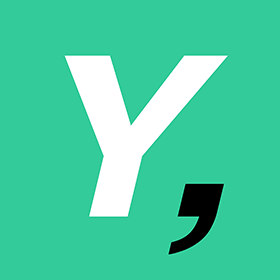Freelancers and self-employed individuals enjoy numerous benefits, such as flexible schedules, the freedom to choose clients, and the opportunity to pursue their passions. However, these perks come with unique financial challenges, including irregular income, lack of employer-provided benefits, and complex tax obligations. Effective financial planning is crucial for freelancers and self-employed individuals to achieve financial stability and long-term success. This blog post provides essential tips and strategies for managing finances, budgeting, saving, and planning for the future in a freelancing or self-employed career.
Understanding the Financial Challenges
Irregular Income
Freelancers and self-employed individuals often face fluctuating income streams. Unlike traditional employees with consistent paychecks, their earnings can vary significantly from month to month based on client work, project availability, and seasonal demand. This irregularity makes it challenging to predict cash flow and budget effectively.
Lack of Employer Benefits
Traditional employees typically receive benefits such as health insurance, retirement plans, and paid leave from their employers. Freelancers and self-employed individuals must independently manage and finance these benefits, which can add financial strain and complexity.
Complex Tax Obligations
Freelancers and self-employed individuals are responsible for handling their own taxes, including quarterly estimated tax payments and self-employment taxes. Navigating these tax obligations can be complicated and requires careful record-keeping and planning.
Financial Planning Strategies
Create a Detailed Budget
A well-structured budget is the foundation of financial stability for freelancers and self-employed individuals. Start by listing all your monthly expenses, including rent or mortgage, utilities, groceries, insurance, and discretionary spending. Next, estimate your average monthly income based on past earnings and project future income conservatively. Track your actual income and expenses closely to identify trends and adjust your budget as needed.
To manage irregular income, consider setting a baseline budget that covers your essential expenses. Allocate any surplus income towards savings, debt repayment, or future investments. During lean months, rely on your savings to cover shortfalls.
Build an Emergency Fund
An emergency fund is crucial for weathering periods of low income or unexpected expenses. Aim to save at least three to six months’ worth of living expenses in a separate, easily accessible account. This fund provides a financial cushion and peace of mind, allowing you to navigate income fluctuations without resorting to debt.
Separate Personal and Business Finances
Keeping personal and business finances separate is essential for effective financial management and accurate tax reporting. Open a dedicated business bank account to handle all business-related income and expenses. Use accounting software or hire a bookkeeper to maintain detailed financial records and generate financial statements. This separation simplifies tax preparation and helps you monitor your business’s financial health.
Plan for Taxes
Freelancers and self-employed individuals must pay self-employment taxes, which cover Social Security and Medicare contributions. Additionally, they are responsible for quarterly estimated tax payments. To avoid surprises, set aside a portion of your income for taxes each month. A good rule of thumb is to reserve 25-30% of your earnings for federal, state, and local taxes.
Consider working with a tax professional to ensure compliance with tax laws and maximize deductions. They can help you navigate the complexities of self-employment taxes, identify eligible business expenses, and plan for retirement savings through tax-advantaged accounts.
Invest in Retirement
Without employer-sponsored retirement plans, freelancers and self-employed individuals must proactively plan for their retirement. Several retirement savings options are available, including:
- Traditional or Roth IRA: Individual Retirement Accounts (IRAs) offer tax advantages and flexibility. Contributions to a traditional IRA may be tax-deductible, while Roth IRA contributions are made with after-tax dollars but grow tax-free.
- SEP-IRA: Simplified Employee Pension (SEP) IRAs are designed for self-employed individuals and small business owners. They allow higher contribution limits compared to traditional IRAs, providing significant tax advantages.
- Solo 401(k): Also known as an individual 401(k), this plan is available to self-employed individuals with no employees (other than a spouse). It offers high contribution limits and the option to make both employee and employer contributions.
Manage Health Insurance
Health insurance is a critical consideration for freelancers and self-employed individuals. Explore various options, including:
- Health Insurance Marketplace: The marketplace offers individual and family health insurance plans, often with subsidies based on income.
- Freelancers Union: This organization provides access to group health insurance plans for freelancers.
- Health Savings Account (HSA): If you choose a high-deductible health plan, you can contribute to an HSA, which offers tax advantages for medical expenses.
Compare plans carefully to find coverage that meets your needs and budget. Consider working with a health insurance broker to explore all available options.
Diversify Income Streams
Relying on a single client or income stream can be risky for freelancers and self-employed individuals. Diversify your income by expanding your client base, offering additional services, or creating passive income streams. This diversification reduces the impact of losing a major client and provides more financial stability.
Invest in Professional Development
Continuously improving your skills and staying updated with industry trends can enhance your marketability and earning potential. Allocate part of your budget towards professional development, such as attending workshops, taking online courses, or obtaining certifications. Investing in yourself pays long-term dividends by attracting higher-paying clients and opening new opportunities.
Conclusion
Financial planning is essential for freelancers and self-employed individuals to achieve financial stability and success. By creating a detailed budget, building an emergency fund, separating personal and business finances, planning for taxes, investing in retirement, managing health insurance, diversifying income streams, and investing in professional development, you can navigate the unique financial challenges of self-employment with confidence.
Proactive financial planning empowers you to take control of your finances, minimize stress, and focus on growing your business. With careful management and strategic planning, freelancers and self-employed individuals can achieve financial security and enjoy the freedom and flexibility of their chosen career path.


Leave a Reply